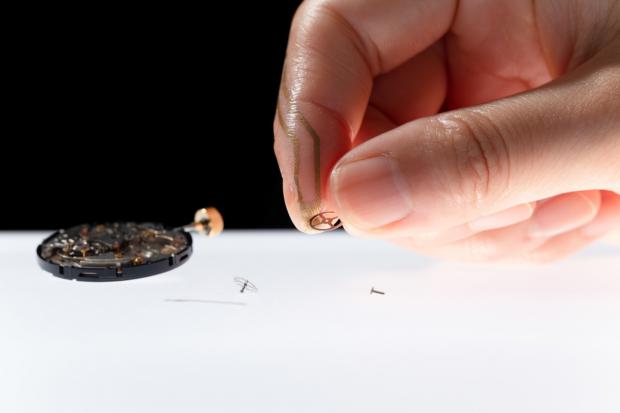
Breaking News
 US Lawmakers Shmooze with Zelensky at Munich Security Conference...
US Lawmakers Shmooze with Zelensky at Munich Security Conference...
 Scientists have plan to save the world by chopping down boreal forest...
Scientists have plan to save the world by chopping down boreal forest...
 New Coalition Aims To Ban Vaccine Mandates Across US
New Coalition Aims To Ban Vaccine Mandates Across US
Top Tech News
 New Spray-on Powder Instantly Seals Life-Threatening Wounds in Battle or During Disasters
New Spray-on Powder Instantly Seals Life-Threatening Wounds in Battle or During Disasters
 AI-enhanced stethoscope excels at listening to our hearts
AI-enhanced stethoscope excels at listening to our hearts
 Flame-treated sunscreen keeps the zinc but cuts the smeary white look
Flame-treated sunscreen keeps the zinc but cuts the smeary white look
 Display hub adds three more screens powered through single USB port
Display hub adds three more screens powered through single USB port
 We Finally Know How Fast The Tesla Semi Will Charge: Very, Very Fast
We Finally Know How Fast The Tesla Semi Will Charge: Very, Very Fast
 Drone-launching underwater drone hitches a ride on ship and sub hulls
Drone-launching underwater drone hitches a ride on ship and sub hulls
 Humanoid Robots Get "Brains" As Dual-Use Fears Mount
Humanoid Robots Get "Brains" As Dual-Use Fears Mount
 SpaceX Authorized to Increase High Speed Internet Download Speeds 5X Through 2026
SpaceX Authorized to Increase High Speed Internet Download Speeds 5X Through 2026
 Space AI is the Key to the Technological Singularity
Space AI is the Key to the Technological Singularity
 Velocitor X-1 eVTOL could be beating the traffic in just a year
Velocitor X-1 eVTOL could be beating the traffic in just a year
"Imperceptible" skin records wearers' finger pressure

And while you might wonder why they bothered, it actually has an interesting potential application.
The ultra-thin yet tough "nanomesh sensor" was built by a team at the University of Tokyo, led by Sunghoon Lee. It's made up of four layers, one of which is an insulating polyurethane mesh, and another of which consists of a network of electrically conductive gold lines – these lines serve as the pressure-sensing electrodes.
The porous membrane is thin enough that when applied to a person's fingertip, it doesn't affect their sense of touch or their ability to grasp objects. At the same time, though, it's very durable. When applied to the fingertips of 18 test subjects, it was reportedly "imperceptible" to the wearer, plus it remained intact and functional even after being rubbed against an unyielding surface 300 times.
It is hoped that the technology could ultimately find use in archiving the handiwork of people such as artisans or surgeons, who perform very delicate, exacting tasks. Based on their finger-pressure data, it's possible that other people or even robots could learn to perform the same tasks, at the same skill level.
The research is described in a paper that was recently published in the journal Science.

 Going the Way of the Denarius
Going the Way of the Denarius

